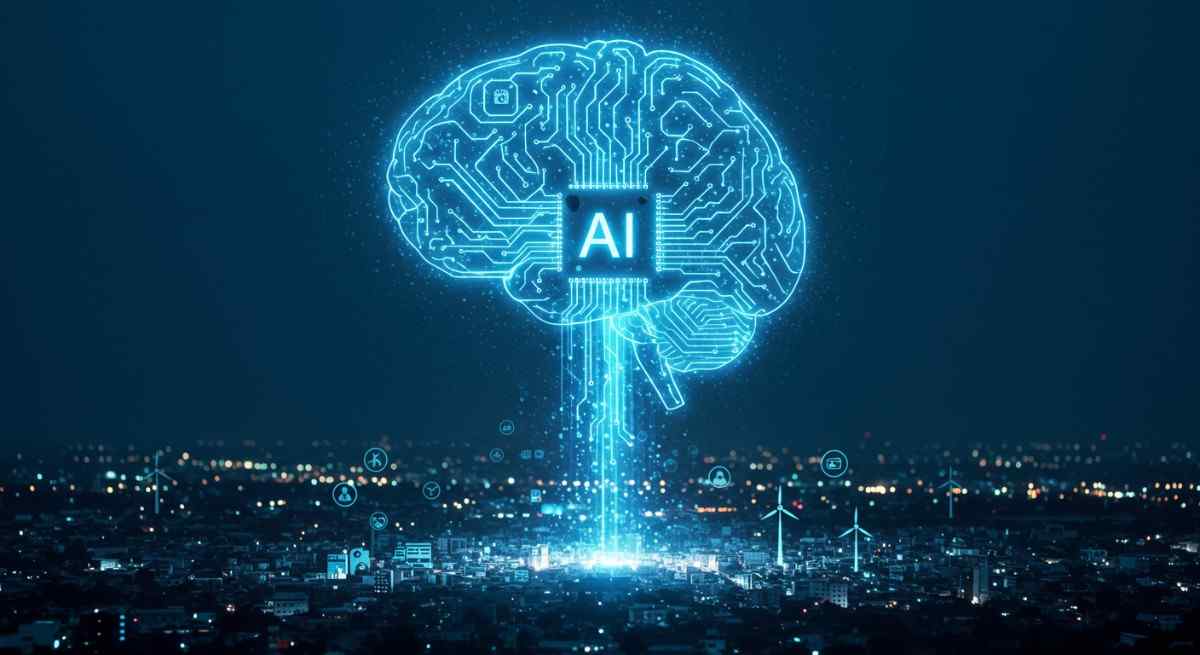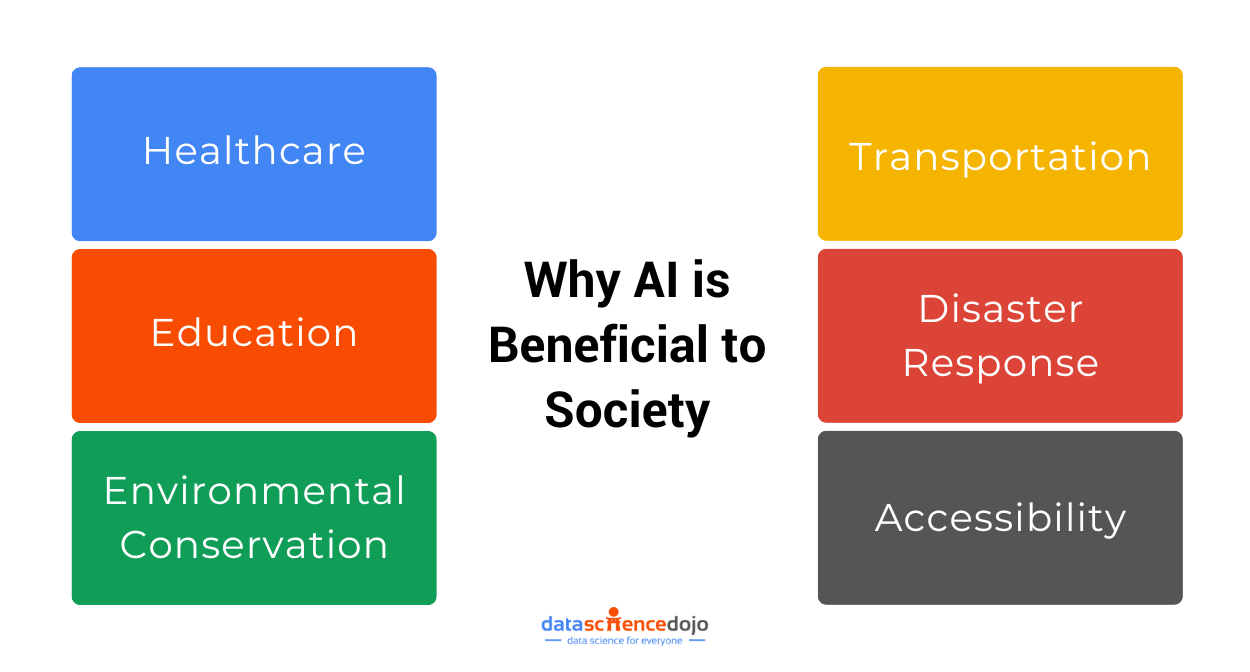Artificial intelligence has undeniably had a significant impact on our society, transforming various aspects of our lives. It has revolutionized the way we live, work, and interact with the world around us.
Learn how Artificial Intelligence is used for road safety
However, opinions on AI’s impact on society vary, and it is essential to consider both the positive and negative aspects when you try to answer the question: Is AI beneficial to society?
On the positive side, AI has improved efficiency and productivity in various industries. It has automated repetitive tasks, freeing up human resources for more complex and creative endeavors. So, why is AI good for our society? There are numerous projects where AI has positively impacted society.
Let’s explore some notable examples that highlight the impact of artificial intelligence on society.
Why is AI Beneficial to Society?
There are numerous projects where AI has had a positive impact on society.
Here are some notable examples highlighting the impact of artificial intelligence on society:
Healthcare: AI has been used in various healthcare projects to improve diagnostics, treatment, and patient care. For instance, AI algorithms can analyze medical images like X-rays and MRIs to detect abnormalities and assist radiologists in making accurate diagnoses.
AI-powered chatbots and virtual assistants are also being used to provide personalized healthcare recommendations and support mental health services.
Explore the top 10 use cases of generative AI in healthcare
Education: AI has the potential to transform education by personalizing learning experiences. Adaptive learning platforms use AI algorithms to analyze students’ performance data and tailor educational content to their individual needs and learning styles.
This helps students learn at their own pace and can lead to improved academic outcomes.
Learn how AI is empowering the education industry
Environmental Conservation: AI is being used in projects focused on environmental conservation and sustainability. For example, AI-powered drones and satellites can monitor deforestation patterns, track wildlife populations, and detect illegal activities like poaching.
This data helps conservationists make informed decisions and take the necessary actions to protect our natural resources.
Explore the Top 18 work-related AI tools
Transportation: AI has the potential to revolutionize transportation systems and make them safer and more efficient. Self-driving cars, for instance, can reduce accidents caused by human error and optimize traffic flow, leading to reduced congestion and improved fuel efficiency.
AI is also being used to develop smart traffic management systems that can analyze real-time data to optimize traffic signals and manage traffic congestion.
Learn more about how AI is reshaping the landscape of education
Disaster Response: AI technologies are being used in disaster response projects to aid in emergency management and rescue operations.
AI algorithms can analyze data from various sources, such as social media, satellite imagery, and sensor networks, to provide real-time situational awareness and support decision-making during crises. This can help improve response times and save lives.
Accessibility: AI has the potential to enhance accessibility for individuals with disabilities. Projects are underway to develop AI-powered assistive technologies.
The technology can greatly help people with visual impairments navigate their surroundings, convert text to speech for individuals with reading difficulties, and enable natural language interactions for those with communication challenges.
Role of Major Corporations in using AI for Social Good
These are just a few examples of how AI is positively impacting society
Now, let’s delve into some notable examples of major corporations and initiatives that are leveraging AI for social good:
- One such example is Google’s DeepMind Health, which has collaborated with healthcare providers to develop AI algorithms that can analyze medical images and assist in the early detection of diseases like diabetic retinopathy and breast cancer.
- IBM’s Watson Health division has also been at the forefront of using AI to advance healthcare and medical research by analyzing vast amounts of medical data to identify potential treatment options and personalized care plans.
- Microsoft’s AI for Earth initiative focuses on using AI technologies to address environmental challenges and promote sustainability. Through this program, AI-powered tools are being developed to monitor and manage natural resources, track wildlife populations, and analyze climate data.
- The United Nations Children’s Fund (UNICEF) has launched the AI for Good Initiative, which aims to harness the power of AI to address critical issues such as child welfare, healthcare, education, and emergency response in vulnerable communities around the world.
- OpenAI, a research organization dedicated to developing artificial general intelligence (AGI) in a safe and responsible manner, has a dedicated Social Impact Team that focuses on exploring ways to apply AI to address societal challenges in healthcare, education, and economic empowerment.
Dig deeper into the concept of artificial general intelligence (AGI)
These examples demonstrate how both corporate entities and social work organizations are actively using AI to drive positive change in areas such as healthcare, environmental conservation, social welfare, and humanitarian efforts. The application of AI in these domains holds great promise for addressing critical societal needs and improving the well-being of individuals and communities.
Impact of AI on Society – Key Statistics
Why is AI beneficial to society? Let’s take a look at some supporting statistics for 2024:
In the healthcare sector, AI has the potential to improve diagnosis accuracy, personalized treatment plans, and drug discovery. According to a report by Accenture, AI in healthcare is projected to create $150 billion in annual savings for the US healthcare economy by 2026.
In the education sector, AI is being used to enhance learning experiences and provide personalized education. A study by Technavio predicts that the global AI in education market will grow by $3.68 billion during 2020–2024, with a compound annual growth rate of over 33%.
Explore 15 Spectacular AI, ML, and Data Science Movies
AI is playing a crucial role in environmental conservation by monitoring and managing natural resources, wildlife conservation, and climate analysis. The United Nations estimates that AI could contribute to a 15% reduction in global greenhouse gas emissions by 2030.
AI technologies are being utilized to improve disaster response and humanitarian efforts. According to the International Federation of Red Cross and Red Crescent Societies, AI can help reduce disaster response times by up to 50% and save up to $1 billion annually.
AI is being used to address social issues such as poverty, homelessness, and inequality. The World Economic Forum predicts that AI could help reduce global poverty by 12% and close the gender pay gap by 2030.
Learn how to use custom vision AI and Power BI to build a bird recognition app
These statistics provide a glimpse into the potential impact of AI on social good and answer the most frequently asked question: how is AI helpful for us?
It’s important to note that these numbers are subject to change as AI technology continues to advance and more organizations and initiatives explore its applications for the benefit of society. For the most up-to-date and accurate statistics, I recommend referring to recent research reports and industry publications in the field of AI and social impact.
Conclusion
In conclusion, the impact of AI on society is undeniable. It has brought about significant advancements, improving efficiency, convenience, and personalization in various domains.
However, it is essential to address the challenges associated with AI, such as job displacement and ethical concerns, to ensure a responsible and beneficial integration of AI into our society.





